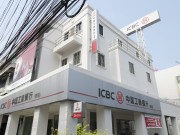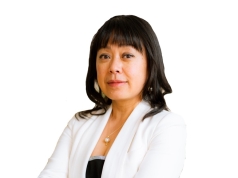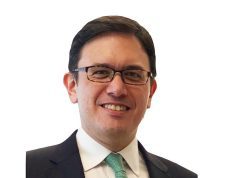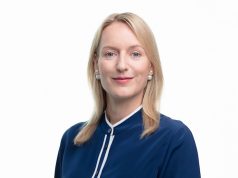The 2021 Investment Outlook:
On Economy, Capital Markets & Investment Outlook
The world expected this decade (2021 to 2030) to be disrupted by technology, new economies growing, wealth growth and the biggest wealth transfer taking place. In 2020, COVID-19 strikes and the global economy comes to a standstill. Certain sectors such as tech, internet economy, consumer staples are doing well whereas sectors such as hospitality, travel, luxury, retail, F&B, entertainment, real estate are suffering.
How do you manage $20 million to $3 billion assets in 2021?
How do you invest $3 million to $300 million in 2021?
The 2021 Investment Outlook:
- What is the economic outlook for 2021 and beyond?
- What are the new big trends and key risks for the next 1 to 3 years?
- What are the investment trends & opportunities in 2021?
- Where are capital flowing into? What is driving the market?
- Any advice for investment managers, advisors, professional investors and HNW investors for 2021 and beyond on managing assets and investments?
The 2021 Investment Outlook: Cameron Systermans, Portfolio Manager at Mercer

The 2021 Investment Outlook: Cameron Systermans, Portfolio Manager at Mercer
We speak to Cameron Systermans, Portfolio Manager at Mercer based in Tokyo, sharing his valuable insights on the economy, capital markets and investment outlook for 2021.
Mercer is the world’s largest outsourced asset management firm with more than $321 billion AUM (Assets under Management, Q3 2020) and $15 trillion of global Assets under Advisement (AuA, June 2020)
Highlights from The 2021 Investment Outlook:
- Outlook: “Global economy to recover, return to, or exceed pre-COVID levels in developed markets”
- “Governments treated the crisis like a natural disaster”
- “Positive outlook on risk assets over the next 1-3 years”
- Governments: “Prefer to risk overstimulating than withdrawing stimulus too quickly”
- “Expect capital to continue to flow towards risk assets”
- “Challenging for many investors to meet their objectives without increasing risk”
- Mercer: “Discretionary portfolios delivered 4 times the annual return objective for Dynamic Asset Allocation”
- First day at work in 2021: Work from home, Tokyo
” Governments treated the crisis like a natural disaster “
Introduction

Who are you, and what do you do?
Cameron: I am a Portfolio Manager in Mercer’s Investment Solutions business, based in Tokyo. I am responsible for managing multi-asset portfolios and customized solutions on behalf of a wide range of clients and client types across Asia. These solutions bring together Mercer’s extensive intellectual capital and highest conviction investment managers.
- Portfolio Manager at Mercer Investment Solutions
- Manage multi-asset portfolios and customized solutions
- Lead dynamic asset allocation for Investment Solutions
I also lead Dynamic Asset Allocation for Investment Solutions in Asia, tilting portfolios to the most attractive asset classes over the medium term based on a combination of macro, valuation and sentiment considerations.
Did you go to office on the first day of work in 2021 or did you work from home?
Cameron: I worked from home. At the start of January 2021, new COVID-19 infections in Tokyo were at record levels, having accelerated particularly quickly in the latter stages of 2020. While Mercer’s Tokyo office is open at limited capacity, and appropriate measures have been taken to limit the spread of COVID-19, public transport remains crowded on weekdays, even outside of the rush hours.
1. What is the economic outlook for 2021 and beyond?
Are governments going to restructure economy or are private enterprises & investments driving the economy our best hope? (Given political & government uncertainties that will slow down economic policy planning & execution)

Cameron: In 2021 we expect the global economy to continue its recovery, with activity levels returning to, or exceeding pre-COVID levels in developed markets (activity has already exceeded pre-COVID levels in China for example).
- Global economy to continue its recovery
- Activity levels to return to, or exceed pre-COVID levels in developed markets
- Consumer demand will be strong, and policy supportive
- Outlook for business investment remains unclear
COVID-19 Impact
While COVID-19 outbreaks are weighing on activity in parts of the US, Europe and Japan in the immediate term, restrictions are less severe than in the earlier parts of the pandemic, and the distribution of vaccines should see the recovery accelerate in the second half of the year. Pent-up demand for travel, dining out and other discretionary services is strong. Meanwhile, the capacity for consumers to pay for such services exists.
For example in the US, the COVID-19 induced recession was unprecedented as incomes actually rose, whereas they typically fall in a recession. Income gains were also the strongest for those in the lowest income brackets, which typically have the highest propensity to consume. The huge monetary and fiscal policy support by central banks and governments across the world resulted in the recession being less severe than it otherwise would have been, and the recovery more robust as there is less slack to work through.
Looking forward, we expect both monetary and fiscal policy to remain accommodative as authorities would prefer to err on the side of caution than risk stunting the recovery. While consumer demand will be strong, and policy supportive, the outlook for business investment remains unclear.
” Global economy to recover, return to, or exceed pre-COVID levels in developed markets “
2. What are the new big trends and key risks, given COVID-19 had changed the direction of the economy, perhaps at least for the next 1 to 3 years?

Cameron: As I alluded to above, potentially the most significant change from the COVID-19 induced recession was how policy authorities responded to the crisis. While in the Global Financial Crisis, central banks were aggressive in easing monetary policy, monetary policy responses were even more creative this time around, and the fiscal policy response couldn’t have been more different from the GFC (Global Financial Crisis 2008).
” Governments treated the crisis like a natural disaster “
Governments treated the crisis like a natural disaster, not seeking to blame anybody for the challenges, and doing whatever they could to avoid businesses collapsing, and consumers losing their jobs or defaulting on their debts. Governments stepped in to pay employees wages, and keep business afloat, while central banks’ interventions prevented the situation transforming into a financial crisis.
Next 1 – 3 Years, and Beyond
Looking forward, it is clear that authorities will remain cautious on a forward looking basis. They would prefer to risk overstimulating than withdrawing stimulus too quickly. Clearly they have learned the lessons from the post-Global Financial Crisis period, when policy, particularly fiscal policy,was tightened too quickly. This time around, public opinion and expert policy advisers are much more supportive of an expansionary fiscal approach.
Unlike 10 or so years ago, populist political groups are not pressuring governments to tighten budgets, while academic theories about debt to GDP ratios above certain levels weighing on potential growth rates have been discredited. Meanwhile central banks are much less concerned about inflation risks, and appear more concerned about disinflation given the challenges of meeting their inflation targets in recent years. The changes the US Federal Reserve made to its policy objectives in mid-2020 for example are significant, and are likely to result in short term interest rates remaining around 0% for at least the next three years. The European Central Bank is also considering implementing a similar framework.
The key risks to the economic outlook over the next 1 to 3 years would include the COVID-19 vaccines being ineffective, governments suddenly and unexpectedly tightening fiscal policy, or monetary policy being tightened much more quickly than is currently anticipated.
” Prefer to risk overstimulating than withdrawing stimulus too quickly “
3. What are the investment trends & opportunities in 2021? (And in the mid-term and the long-run?)

Cameron: In light of the economic outlook outlined above, we have a positive outlook on risk assets over the next 1-3 years. A strong recovery, supported by pent-up demand, the vaccine rollout and ongoing fiscal and monetary policy accommodation will be supportive for company earnings.
- Preference for Emerging Markets and Small Caps
- Global High Yield Credit should also continue to perform well
While equity valuations of some markets appear expensive against their own history, valuations are not stretched when measured against cash or government bonds. Within equities, we have a preference for Emerging Markets and Small Caps over Developed Large Caps and Defensive Equities.
Both Emerging Markets and Small Caps have (compared to Developed Large Caps) relatively attractive valuations, typically perform better earlier in the economic cycle, while Asia ex-Japan’s effective handling of the pandemic favours Emerging Markets. Global High Yield Credit should also continue to perform well. While spreads have returned to longer term average levels, default rates are likely to have peaked, debt issuance will slow from high levels and demand will remain robust in light of low cash rates and government bond yields. Over the longer term however, higher valuations for risk assets weigh on forward looking returns.
” positive outlook on risk assets over the next 1-3 years “
4. Where are capital flowing into?
What is driving the market? The real economy? The financial markets?

Cameron: We expect capital to continue to flow towards risk assets, as the economic outlook remains strong, and many investors who raised cash and government bond allocations during the height of the pandemic are yet to fully re-invest. Meanwhile prospective returns on cash, government bonds and even investment grade credit remain low, which may make it challenging for many investors to meet their objectives without increasing risk.
” expect capital to continue to flow towards risk assets “
5. Any advice for investment managers, advisors, professional investors and HNW investors for 2021 and beyond on managing assets and investments?
Cameron: 2020 provided plenty of useful lessons for all investors and asset owners. Both the economic outlook and market conditions changed very frequently, as did the policy actions of governments and central banks.
As a result performance of various asset classes or styles shifted rapidly, resulting in significant opportunities to benefit from dislocations or overreactions in the market. It was important not only to be able to quickly understand what was happening and identify emerging opportunities, but have the governance structure in place to allow portfolios to capitalise on these opportunities. Discretionary portfolios that Mercer manages on behalf of clients in Asia for example, delivered around 4 times the annual return objective for Dynamic Asset Allocation.
” Mercer Discretionary portfolios delivered 4 times the annual return objective for Dynamic Asset Allocation “
Of course, it goes beyond just being nimble with the right governance structures. 2020 also highlighted the importance of ensuring that portfolios are appropriately diversified, not just by asset class, but also style or investment approach, geography and manager. The importance of looking through into your portfolio on a regular basis to understand exposures, as well as periodic stress testing or conducting “fire drills” was also evident.
Thank you Cameron for sharing your valuable insights on the economy, capital markets & investment outlook for 2021.
Do you look forward to be able to travel for work and holiday?
Cameron: Yes, I am really looking forward to travelling again.

Which will be your likely first destination(s)?
For Work: Various parts of the Asian region to visit clients.
For Holiday: Australia to visit my family and friends, as well as great restaurants, cafes and wineries.
Related:
- Mercer: White Paper on Optimizing Portfolio in Private Markets for LPs in 2021
- Mercer Global AUM Grew to $321.4 Billion in Q3 2020
Cameron Systermans, Portfolio Manager at Mercer

Cameron is a senior portfolio manager based in Mercer’s Tokyo office. His primary responsibilities are managing multi-asset portfolios and customised solutions for Japanese and Korean clients. Cameron is also the Head of Mainstream Investments for the Japanese Delegated Solutions practice and is an investment consultant for clients located in US territories in the Western Pacific.
Prior to relocating to Tokyo in July 2016, Cameron was a senior associate with the Pacific Investment Management Team, based in Melbourne. His primary responsibilities were asset allocation and providing support on fixed income and alternative investment portfolios.
Cameron joined Mercer in June 2013 from the Australian Department of the Prime Minister and Cabinet, where he was responsible for providing high-level advice to the prime minister on financial sector and foreign investment policy issues as well as analysing key financial market developments. Prior to this, Cameron held responsibilities for policy matters under consideration at the G20 and global macroeconomic analysis. Cameron was previously with the Department of Finance, where he worked on the Australian budget.
Cameron holds a Master of Financial Management, a Bachelor of Economics and a Bachelor of Asian Studies from the Australian National University. He is also a CFA® charterholder.
 Mercer
Mercer
Mercer delivers advice and technology-driven solutions that help organizations meet the health, wealth and career needs of a changing workforce. Mercer’s more than 25,000 employees are based in 44 countries and the firm operates in over 130 countries.
Mercer is a business of Marsh & McLennan Companies (NYSE: MMC), the world’s leading professional services firm in the areas of risk, strategy and people with 76,000 colleagues and annualized revenue approaching $17 billion. Through its market-leading businesses including Marsh, Guy Carpenter and Oliver Wyman, Marsh & McLennan helps clients navigate an increasingly dynamic and complex environment.
Sign Up / Register
Caproasia Users
- Manage $20 million to $3 billion of assets
- Invest $3 million to $300 million
- Advise institutions, billionaires, UHNWs & HNWs
Caproasia Platforms | 11,000 Investors & Advisors
- Caproasia.com
- Caproasia Access
- Caproasia Events
- The Financial Centre | Find Services
- Membership
- Family Office Circle
- Professional Investor Circle
- Investor Relations Network
Monthly Roundtable & Networking
Family Office Programs
The 2025 Investment Day
- March - Hong Kong
- March - Singapore
- July - Hong Kong
- July - Singapore
- Sept- Hong Kong
- Sept - Singapore
- Oct- Hong Kong
- Nov - Singapore
- Visit: The Investment Day | Register: Click here
Caproasia Summits
- The Institutional Investor Summit
- The Investment / Alternatives Summit
- The Private Wealth Summit
- The Family Office Summit
- The CEO & Entrepreneur Summit
- The Capital Markets Summit
- The ESG / Sustainable Investment Summit











































